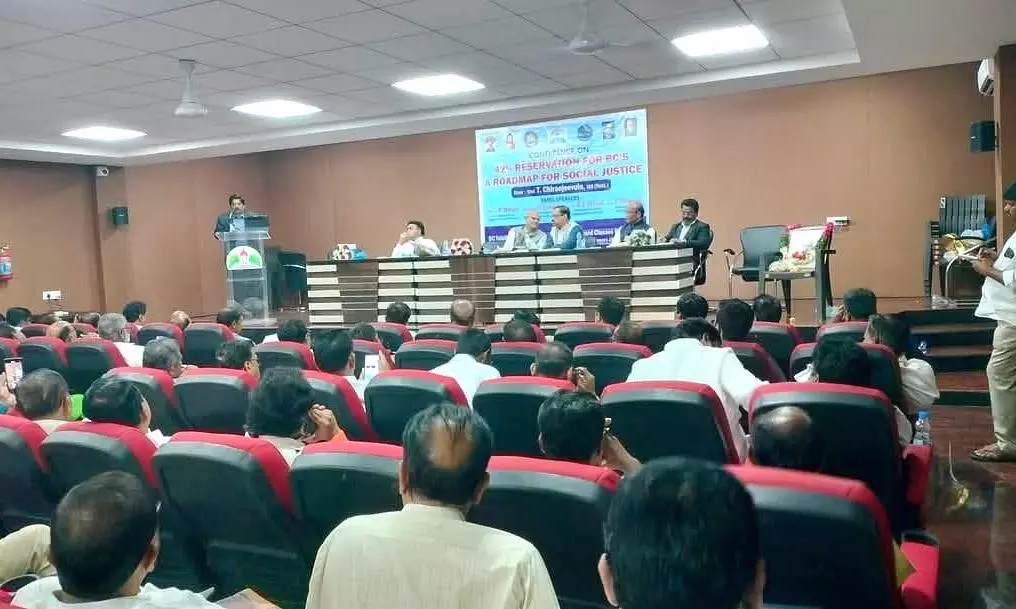Experts Urge Telangana to Constitutionally Safeguard 67% Reservation Law
Legal minds and policy leaders warn that the landmark move may falter without IXth Schedule protection, citing Tamil Nadu's model as the way forward.

Hyderabad: Legal and policy experts have urged the state government to not rush the implementation of its ambitious 67 per cent reservation policy for the SC, ST and Backward Classes community without first giving it strong constitutional backing.
Speaking at a conference here, P. Wilson, senior advocate and Rajya Sabha member for Tamil Nadu, called the move historic but warned that without IXth Schedule protection, which places the law beyond judicial scrutiny. “Tamil Nadu showed the way — pass the law, put it in the IXth Schedule, and protect it from court challenges,” he said, referring to his state’s 69 per cent reservation law that has stood firm for decades. “The courts cannot strike down what the Constitution guards,” he added.
Jointly organised by the BC Intellectual Forum, All India BC Federation, AIOBCSA, and Telangana BC Lawyers Front, the conference saw speakers highlight both opportunities and risks surrounding Telangana’s new reservation bill..
Former advocate general B.S. Prasad stressed that reservations were not a matter of political favour but a constitutional obligation. “This is about rightful representation. The marginalised cannot be left to the mercy of legal loopholes,” he said.
Justice V. Eswaraiah (retd), former National Commission for Backward Classes chairperson, stated that constitutional amendments — and not just government orders — were essential for safeguarding social justice policies. “History has shown us that executive decisions without legal grounding don’t last,” he warned.
Former IAS officer T. Chirenjeevulu outlined how past governments succeeded when laws were supported by hard data and political unity. He urged BC organisations to keep pressure on the Centre to ensure constitutional cover.
Student leader G. Kiran Kumar called on the youth and civil society to take ownership of the movement. “This is not just a legal battle—it’s about the future of inclusive development,” he said.

